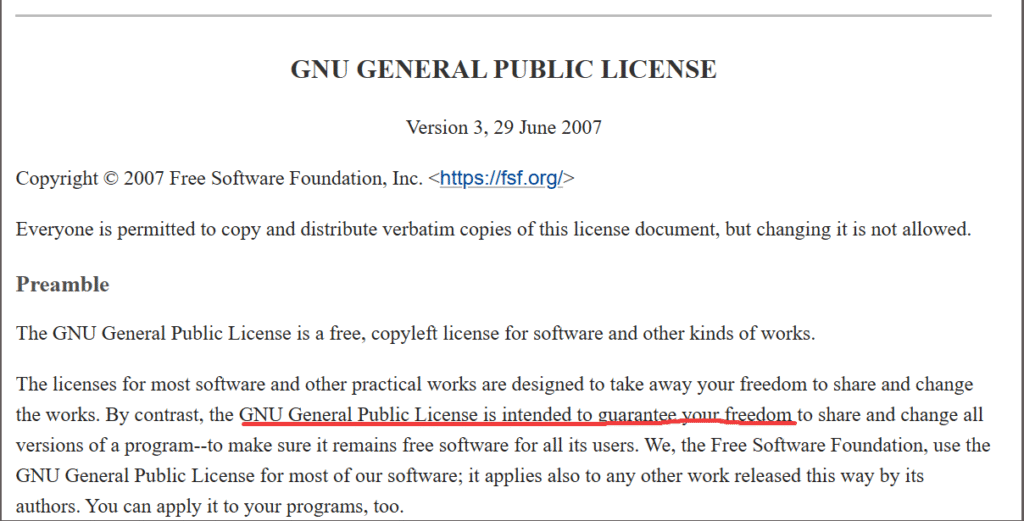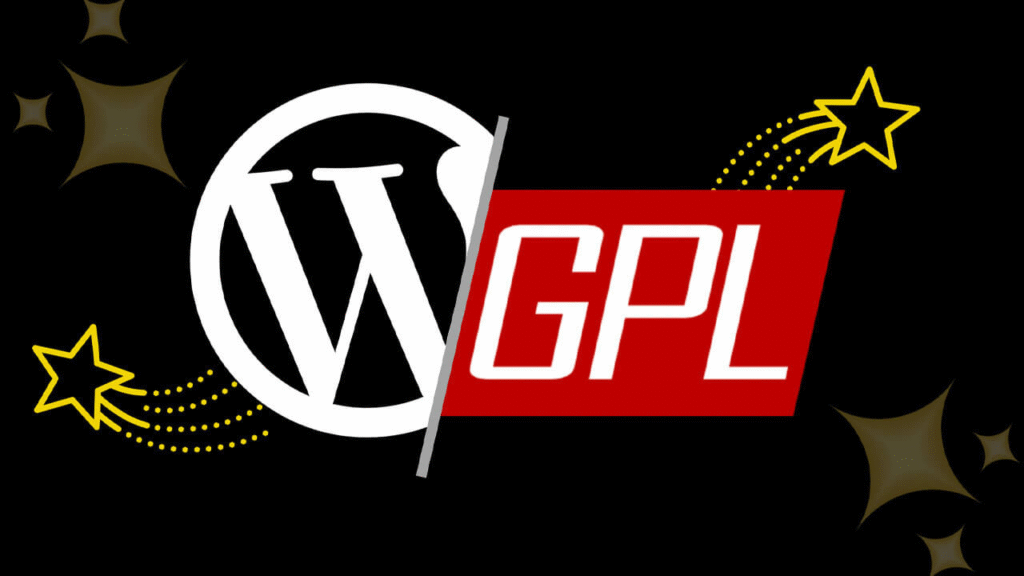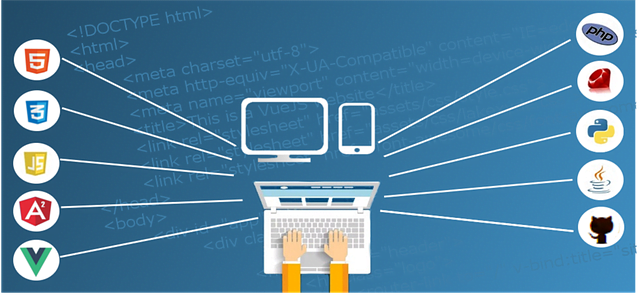WordPress GPL License – How It Affects Users And Developers
You may have heard of the GPL license that WordPress uses. But you are not sure about what it means and how it affects the CMS.
In this deep dive on WordPress GPL license, we will cover the ins and out. And at the end, you will understand how you are affected as a user or developer.
Let’s start by knowing the GPL license itself!
What’s the GPL License?

GPL is the license that free software and open source projects use to entirely pass the reality of openness. It was developed by Richard Stallman in 1989 after which he passed through the pain of closed source application.
According to Richard, he encountered a nightmare when their new printer failed to give him access to modify its infrastructure because it was licensed under a private license.
Richard worked at the Massachusetts Institute of Technology (MIT), specifically at the MIT Artificial Intelligence Laboratory, in the 1970s and early 1980s. This is where he discovered the danger of closed-source applications.
In contrast to the new printer, the older one at MIT came with source code that Richard and other programmers could freely access and modify. This meant that when the printer misbehaved or lacked a feature—like notifying users when a paper jam occurred—Richard could simply dive into the code and fix it. He even customized the printer to send alerts to nearby users whenever it got stuck, making it easier for someone to respond and fix the issue quickly.
However, when MIT replaced the old printer with a newer model from Xerox, things changed. Despite his request, Richard was denied access to its source code. The printer was now governed by a proprietary license, meaning that only the company could modify or share its code. This restriction made it impossible for Richard to apply the same useful changes he had previously made.
To him, it was more than just a technical inconvenience — it was a violation of the spirit of collaboration and freedom that had driven software innovation at MIT. This moment became a turning point and a deep source of frustration. It helped crystallize his mission to fight against the growing wave of proprietary software.
To cut it short, Richard started writing a license agreement that would allow anyone to use software as they see fit with no limit at all.
His attempt became successful and the GPL License was formed.
He initially used the license for the GNU operating system which he co-founded—which is why GNU always follows the GPL.
The GNU GPL (General Public License) by Stallman comes with these four freedoms —
- Freedom to use and study for any purpose.
- Freedom to modify the software to suit your project.
- Freedom to redistribute the original copies of the software.
- Freedom to distribute modified copies of the software.
Freedoms of GNU GPL Explained

Here are what the four freedoms of the GPL license actually mean.
1. The Freedom to use and study
The Freedom to use and study gives users unrestricted access to access and see the source code of software — they can seriously use it for any purpose (even when it is outside the main vision).
The study part of it means that users can even study the behind-the-scenes of a project, opening chances of developing something better.
2. The Freedom to modify software
This freedom ensures that end-users can still modify the code after accessing it.
This freedom actually solved Richard’s problem (back forward to what the closed-source printer from Xerox did to him) — this arrangement allows complete modification to suit any need.
In simple words, users of GPL-licensed software can alter stuff without looking back. The main goal is to see their prob solved!
3. The Freedom to redistribute software
This line is where the level changed. And it can affect builders in some ways.
Aside from using, studying, and modifying software, users can also redistribute copies of the original product to help their neighbors.
The Freedom of redistribution makes it possible for people to acquire premium software even without paying the main developers. This free access obviously comes from friends and neighbors.
4. The Freedom to distribute modified copies
On top of the perceived wild nature of the GPL, it allows users to even distribute modified copies.
By distributing modified copies, it translates to a whole new product that is just being shared.
That is to say — software when modified by users can become their own product. They have the right to do whatever they want with it.
The only restriction is that the modified copy must inherit the same GPL license.
What’s WordPress GPL?

WordPress GPL is obtained after combining the four freedoms to the Content Management System.
The role of the GPL is to assist with making WordPress and its derivative products completely open.
The Freedom to use and study. The Freedom to modify. And the Freedom of distributing copies and modified software are now applied to WordPress.
Why is WordPress licensed under GPL?
WordPress is licensed under the GPL license because it seems to be the most suitable agreement for the vision — democratizing publishing (see WordPress.com About Page).

Matt Mullenweg, the co-founder of WordPress is really a lover of open-source software. Part of his vision is to oppose the proprietary software movement (likewise Richard Stallman the GPL maker).
He found a license developed by a like-minded person and couldn’t wait to use it for WordPress.
How the GPL Affects WordPress Developers and Users
The usage of the GPL license on WordPress means many things for both WordPress entrepreneurs and users.
Let’s see how it affects these two sets of people —
What Does It Mean for Users?
- Ability to study source code and the usage right to utilize anyhow.
- Ability to build on software rather than starting from scratch
- Ability to distribute third-party works
The GPL used on WordPress gives users all the freedoms that come with the license agreement.
WordPress users can study derivative works like plugins and themes comprehensively, as they all fall in the open-source nature. They can utilize it to do any task of their choice without being questioned.
Those who built their website on WordPress also can continue from where theme/plugin creators stopped. They can add other functionalities to drive the software to do what they want.
Last but not least, the GPL permits WordPress users to distribute works not coded by them without any restriction.
The only restriction is that when GPL-licensed work is distributed or sold, it must inherit the same freedoms.
You may copy and distribute verbatim copies of the Program’s source code as you receive it, in any medium, provided that you conspicuously and appropriately publish on each copy an appropriate copyright notice and disclaimer of warranty; keep intact all the notices that refer to this License and to the absence of any warranty; and give any other recipients of the Program a copy of this License along with the Program. — GPL v2
What Does It Mean for Developers?
- No Need to Reinvent the Wheel: Developers don’t have to build a full CMS from scratch. WordPress already gives them a solid GPL-licensed foundation to create great themes and plugins.
- Helpful Tools Built-in: WordPress provides APIs, hooks, and filters that make it easier to extend functionality without touching the core. That’s a huge head-start in development.
- Community-Driven Growth: With the GPL, other developers can contribute fixes or improvements to your code. This brings about faster innovation, and improvements.
The GPL license used in WordPress saves developers an enormous amount of groundwork. Instead of writing a content management system from the ground up, they inherit a robust, well-tested foundation they can build on.
Because WordPress is designed with extensibility in mind, developers can rely on its APIs, hooks, and filters to customize behavior or add new features without having to touch or fork the core software. That’s development made faster, cleaner, and safer.
And thanks to the GPL, they’re not building in isolation. Other developers can contribute improvements, spot bugs, or fork ideas to take them even further. It’s a license that calls collaboration, speeds up development cycles, and raises the quality bar for everyone working within the WordPress ecosystem.
The only condition: when distributing GPL-licensed code, the same freedoms must carry forward. It’s open, but it’s also protected to keep the cycle of contribution going.
Free As In Speech vs Free As In Bear?
Free as in speech and Free as in Beer are free software concepts that provide meaning to the mind of the GPL license.
Free as in speech means all the four freedoms of the GPL license — the right to use, modify and distribute modified software or original copies.
GPL-licensed software is generally free as in speech, not always free as in beer.
Free as in Beer means that the software is naturally free as in price.
Mind you, Free as in Speech only presents you with the freedoms; it doesn’t refer to free price.
Therefore, GPL-licensed software is free as in Speech!
The only possible way it can be free as in Beer is when you get the product from your neighbor (in this case, you acquire it free of cost).
For WordPress, plugins and themes located in the WP.org repository are also free as in Beer.
Note: Free as in Freedom is same as Free as in Speech.
Are WordPress Themes and Plugins considered derivative works?
Yes, WordPress themes and plugins are derivative works and hence should be licensed under GPL.
WordPress further stresses that a theme or plugin must be 100% GPL for it to be in the directory.
A derivative is considered a WordPress-derived work.
And themes and plugins function as a part of the CMS, not just extension.
Mark explained it very well in his article — “themes interact with WordPress (and WordPress with themes) the exact same way that WordPress interacts with itself”.
That is to say that WordPress themes and plugins are genuinely attached to the CMS in such a way that their functions are loaded together.
Meaning, they are derivative works since they are working simultaneously with WordPress.
What do you pay for when you buy GPL Themes and Plugins?
The Free in Free Software doesn’t relate to price. It just means all the freedoms that come from the GPL.
Users have the freedom to study and use, modify, and even distribute copies or forked works.
A question that always comes up is — if users have these freedoms, especially the free usage right, what then are they paying for when they buy themes and plugins?
You may charge any price or no price for each copy that you convey, and you may offer support or warranty protection for a fee — GPL v3
Well, the GPL, though a 100% promoter of open-source spirit, doesn’t make it impossible for developers to get credit for their work.
The code itself is free. But developers can charge for the following —
- Customer support
- Updates
- Distribution
Customer support is a valuable asset that WordPress entrepreneurs use to earn money from their work. It’s a means through which customer’s queries and problems are solved.
Another way developers charge for their product is through Updates. Updates is crucial as it keeps the Plugin/Theme current with WordPress version and different security measures.
Even the act of distributing can be charged for. The GPL license says so.
It’s at the distributor’s discretion to choose whether to charge for the product being distributed or not. Needless to say, there is a cost associated with hosting a software, therefore selling it at a price is the way to keep things going.
Similar Free Software Licenses like the GNU GPL
There are other licenses that share the same spirit as the GNU GPL. They exist to uphold user freedom, though they approach it in slightly different ways.
1. MIT License

This is one of the most permissive open-source licenses out there. It allows reuse of code within proprietary software on the condition that the license is included.
Unlike the GPL, it doesn’t require derivative works to inherit the same license. So, it gives freedom without forcing reciprocity.
2. Apache License 2.0
Apache is another strong license that gives users the right to use, modify, and distribute. But unlike GPL, it includes a clause for patent protection, meaning contributors can’t later sue users over patent claims. It’s often preferred by corporate projects for this reason.
3. BSD License

Short for Berkeley Software Distribution, this license is like MIT in its permissiveness. It lets you take the code, use it, repackage it, or sell it, without having to open-source your own work. It’s developer-friendly but doesn’t promote community growth the same way GPL does.
In short:
GPL promotes freedom and demands that you pass it forward.
MIT and BSD say, “Do what you want.”
Apache says, “Do what you want, but don’t come back with patent threats.”
Each license has its place, but if your heart beats for community collaboration and fairness, the GPL stays unbeaten.
A Look at Nulled WordPress Themes and Plugins (Unofficial GPL Websites)
You may have heard of Nulled Themes and Plugins as someone who has encountered WordPress GPL.
Nulled Themes and Plugins came about because of the right to distribute software.
They are WordPress products that have undergone distribution; when you acquire these products, you get them at unofficial sources because the real developers are the ones that have the official products.
Nulling itself is the process of removing the license field (placed by developers as a means to earn) so that the product can be used without a license key/activation.
Nulling while legal because of the GPL license deprives original developers from benefiting from their work.
Therefore, it’s mostly unrecommended to use nulled themes and plugins.
Apart from the pain it can cause actual developers, users who acquire these files also risk the livelihood of their sites as some may contain malware.
Conclusion
The GPL license of WordPress is a catalyst for the CMS dominance over the years. Because it opens the door to the behind-the-scenes, like-minded developers could test, innovate, and improve the program.
The GPL attracted a huge community of passionate developers who now have built thousands of extensions for the platform.
As a result, those who want to have a website always find themselves going the way of WordPress since it has so much flexibility.
The GPL on WordPress favors without partiality both entrepreneurs and users.
While the most conspicuous benefits go to users, long-term value goes to developers.
FAQs
Are GPL Plugins and Themes safe?
GPL themes and plugins are simply WordPress extensions that follow the General Public License.
Before anything is approved on WordPress.org, a group of developers scrutinizes it for safety and for GPL compatibility.
While there’s no 100% security, plugins and themes hosted on WordPress.org are official products and therefore usually safe to use.
GPL extensions redistributed through nulled theme and plugin sites might not have the same security guarantee.
Are GPL themes and plugins legal?
I assume you mean — “Are Redistributed GPL (aka nulled themes/plugins) legal?
Most definitely, the GPL license allows the distribution, which they do even when they list it for a price.
So, unofficial GPL websites are legal under the GPL, but not always right.
What’s copyleft?
Copyleft is the principle that flips traditional copyright on its head. Instead of restricting what you can do, it ensures you always can do — provided you don’t lock others out of the same freedoms.
It means: if you take a GPL-licensed work, tweak it, and share it — your version must also be GPL. This guards against someone benefiting from community code and then closing it off. Everyone stays free.
So, while copyright says “All rights reserved,”
Copyleft says, “All rights reversed — and passed to the next developer.”
It’s the license that keeps on giving.
Why is the WordPress GPL not widely discussed?
The reason why the WordPress GPL is not widely discussed is that it’s a sensitive area in the WordPress community.
Typically, those who build for WordPress encounter the GPL on their first attempt to submit their project. But the average user doesn’t build — they just use — so they stay ignorant of it.
That leaves the explanation, I mean, the topic, to be only discussable by developers.
And developers themselves don’t always want to talk about it. Not because they don’t understand it, but because talking too much about it could undermine their work. So they just keep quiet.

